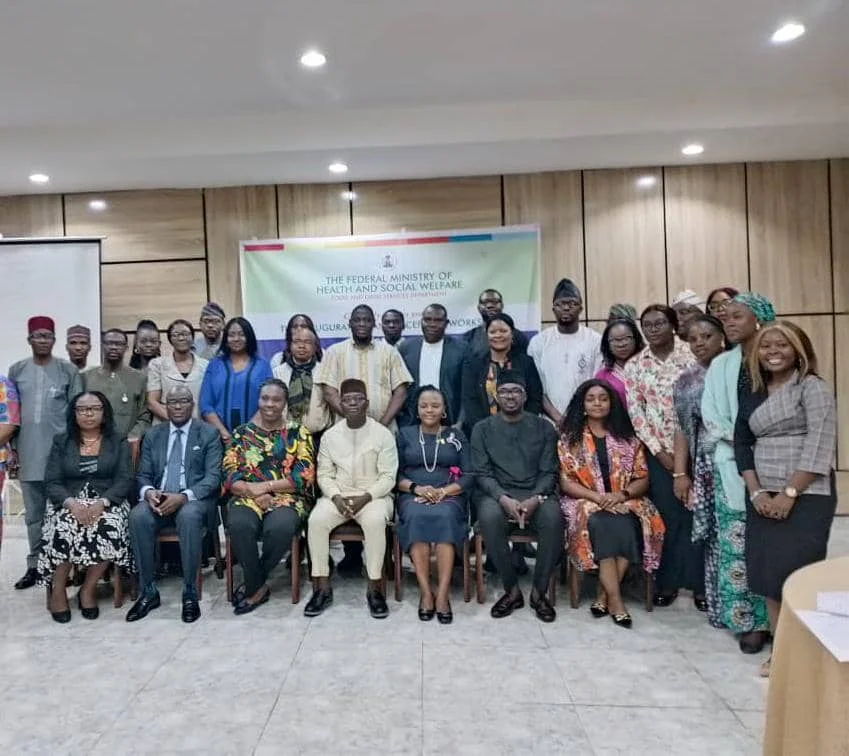By Folasade Akpan
In a significant move to combat rising cases of diet-related illnesses, the Federal Government has adopted Front-of-Pack Labelling (FOPL) to help Nigerians make healthier food choices and reduce the burden of Non-Communicable Diseases (NCDs).
Ms. Daju Kachollom, Permanent Secretary, Ministry of Health and Social Welfare, disclosed this in Abuja at the inauguration and inaugural workshop of the National Technical Working Committee on FOPL.
She was represented by Dr Okara Dogara, Senior Technical Adviser.
Kachollom said the adoption of FOPL marked a major milestone in implementing the National Policy on Food Safety and Quality and its 2023 Implementation Plan.
“We come together to pool our expertise and give voice to every Nigerian who deserves transparency and trust when choosing what to purchase and serve at their tables,” she said.
She expressed concern over Nigeria’s growing NCD burden, stating that nearly 30 per cent of all deaths in the country were caused by diseases such as cardiovascular conditions, diabetes, cancer, and chronic respiratory illnesses.
“For Nigerians aged 30 to 69, the risk of premature death from NCDs is 22 per cent.
“These figures represent families burdened by medical costs, anxious parents, and a nation grappling with preventable illnesses,” she said.
Kachollom explained that FOPL, using simple symbols, colours, and brief texts, would empower Nigerians to make healthier decisions quickly and easily.
“Whether its mothers in Kano identifying high salt content, students in Lagos avoiding trans fats, or fathers in Port Harcourt making informed choices, FOPL can save lives and ease pressure on our health system.
“The FOPL initiative builds on Nigeria’s sodium reduction guidelines launched in March and trans-fat elimination regulations introduced by NAFDAC in 2022,” she added.
Also speaking, Dr Pindar Wakawa, Technical Officer for Nutrition at WHO Nigeria, lauded stakeholder commitment in promoting healthy food policies.
He noted that the 2030 Agenda for Sustainable Development aimed to end malnutrition and reduce premature NCD-related deaths by one-third.
“Addressing this requires integrated regulation and coordinated action.
“Overconsumption of unhealthy foods drives obesity, hypertension, and high blood sugar, all key NCD risk factors,” Wakawa said.
Citing WHO’s 2018 country profile, he noted that NCDs account for 29 per cent of deaths in Nigeria, with cardiovascular disease responsible for 11 per cent and cancer for 4 per cent.
He added that WHO supported Front-of-Pack Nutrition Labelling as one of the most effective tools to combat obesity and diet-related illnesses.
Ms. Joy Amafah-Isaac, In-Country Coordinator for Food Policy and Nutrition at the Global Health Advocacy Incubator (GHAI), said Nigerians deserved the right to understand what is in their food.
“Promoting healthy diets has a direct impact on productivity and national wellbeing,” she added.
The News Agency of Nigeria (NAN) reports that the newly inaugurated committee is tasked with developing national FOPL guidelines, recommending an appropriate labelling system, and reviewing global best practices for local adaptation.
The committee will also validate a nutrient profiling model, examine local research on design elements like colour and text, align the policy with existing standards, and propose a regulatory roadmap.
Other duties include facilitating stakeholder consultations, designing consumer education campaigns, and overseeing monitoring and evaluation during the pilot phase. (NAN)(www.nannews.ng)
Edited by Abiemwense Moru












